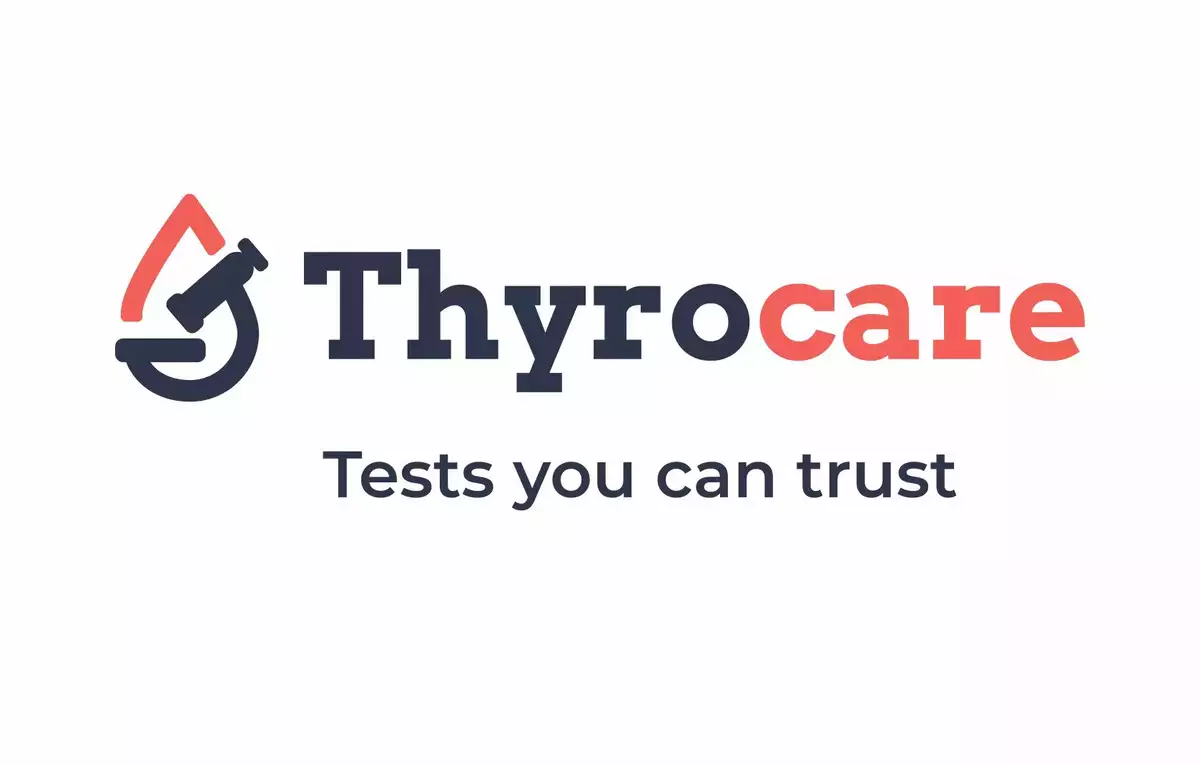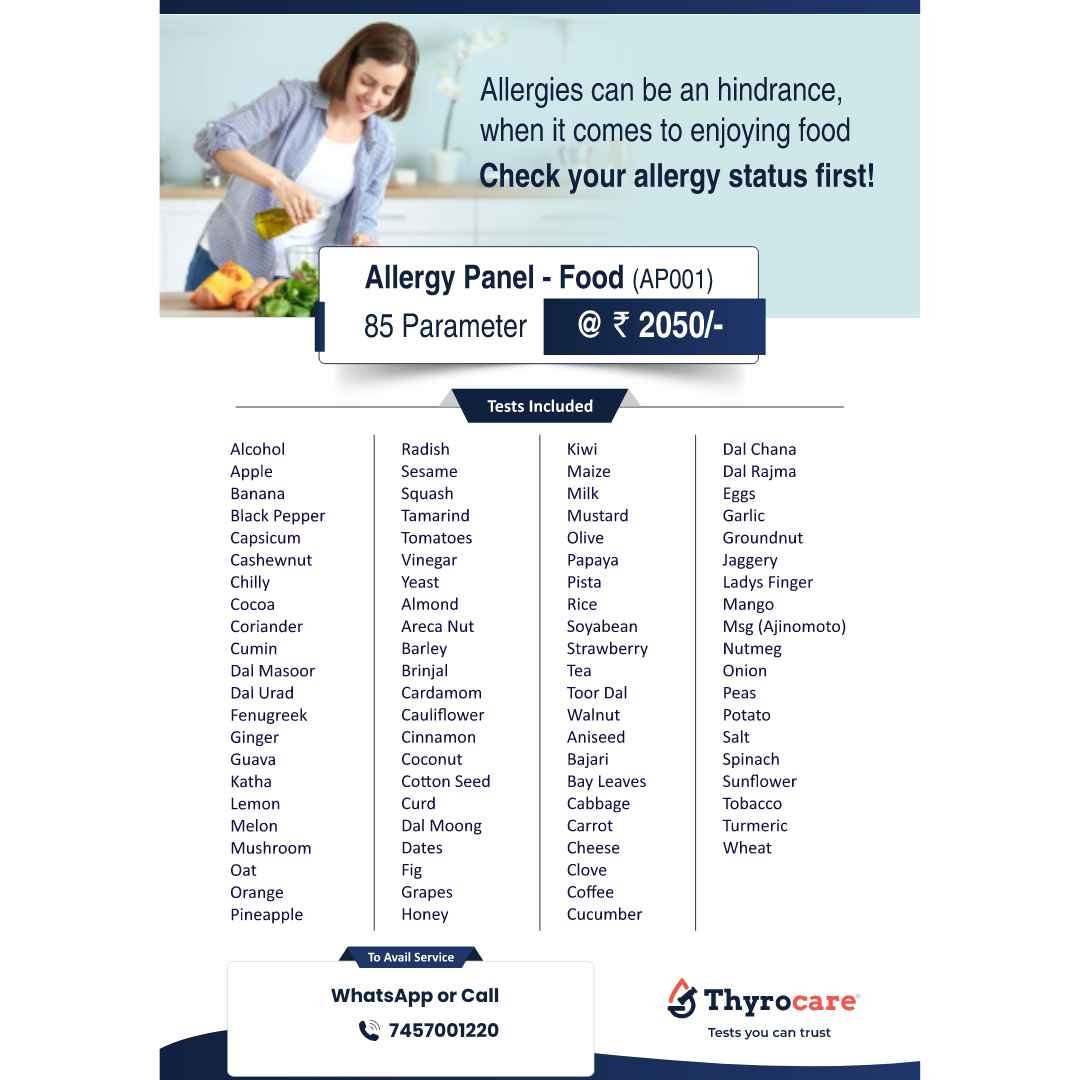Top 20 FAQs About the Allergy Panel – Food (APOOI)
Here’s a comprehensive list of frequently asked questions about the Allergy Panel – Food (APOOI), along with detailed answers to help you better understand food allergies and the importance of testing.
1. What is the Allergy Panel – Food (APOOI)?
The Allergy Panel – Food (APOOI) is a diagnostic test that screens for 85 common food-related allergens. It helps determine if you are allergic to specific foods by analyzing your body’s immune response to these allergens.
2. Why should I take the Allergy Panel – Food (APOOI)?
If you suspect food allergies or experience symptoms like hives, swelling, stomach pain, or breathing issues after eating certain foods, the APOOI test can help identify the specific allergens causing these reactions. It’s essential for managing your diet and preventing severe allergic reactions.
3. How is the Allergy Panel – Food (APOOI) test performed?
The test typically involves a simple blood test. A small sample of your blood is taken and analyzed in a laboratory to check for specific immune responses to 85 food allergens.
4. What allergens are tested in the Allergy Panel – Food (APOOI)?
The test includes a wide range of allergens from different food groups, such as dairy, eggs, grains, nuts, seeds, seafood, fish, fruits, vegetables, legumes, meat, poultry, and spices.
5. How much does the Allergy Panel – Food (APOOI) cost?
The test costs ₹2050/- and provides comprehensive screening for 85 food allergens, making it an affordable and detailed diagnostic tool.
6. How long does it take to get the results from the Allergy Panel – Food (APOOI)?
Typically, you can expect to receive your test results within 3 to 7 working days after your blood sample is taken. Your healthcare provider will share the results with you and help interpret them.
7. What symptoms might indicate a food allergy?
Symptoms of food allergies can vary but commonly include skin reactions like hives or rashes, digestive issues like nausea, vomiting, or diarrhea, respiratory problems such as wheezing or shortness of breath, and in severe cases, anaphylaxis.
8. Can I develop food allergies later in life?
Yes, food allergies can develop at any stage of life, even if you’ve eaten the food without issue previously. That’s why testing is important if you experience any new symptoms after eating.
9. Can food allergies be cured?
Currently, there is no cure for food allergies. However, managing your diet by avoiding known allergens can help prevent allergic reactions and improve your quality of life.
10. How should I prepare for the Allergy Panel – Food (APOOI) test?
You should avoid taking antihistamines or other allergy medications for at least 5-7 days before the test, as these can interfere with the results. It’s also a good idea to stay hydrated and eat normally unless otherwise instructed by your doctor.
11. Can I eat normally before the test?
Yes, you can continue your regular diet before the test unless your doctor advises you otherwise. However, remember to avoid any allergy medications that could impact the accuracy of the results.
12. What happens if the test shows a severe allergy?
If the test indicates a severe allergy, your doctor will advise you to strictly avoid that allergen. In some cases, you may be prescribed medications such as antihistamines or an epinephrine auto-injector to manage accidental exposures.
13. Is the Allergy Panel – Food (APOOI) covered by insurance?
Coverage for allergy testing depends on your insurance provider and the policy you hold. It’s best to check with your insurance company to confirm if the test is covered.
14. Can I develop a tolerance to a food allergen over time?
While it’s uncommon, some people may outgrow certain food allergies, particularly in cases of childhood allergies like those to milk, eggs, or soy. However, others may persist throughout life, and in rare cases, allergies can worsen over time.
15. What is the difference between a food allergy and food intolerance?
A food allergy involves the immune system reacting to a food protein, which can cause symptoms like hives, swelling, or even anaphylaxis. Food intolerance, on the other hand, typically involves difficulty digesting certain foods and may cause symptoms like bloating or stomach pain, but it does not involve the immune system.
16. Can I test for allergies at home?
While there are at-home allergy test kits, the Allergy Panel – Food (APOOI) involves a professional blood test conducted in a laboratory for accurate results. Always consult a healthcare provider to ensure proper testing and interpretation of results.
17. Can children take the Allergy Panel – Food (APOOI)?
Yes, children can undergo allergy testing if they exhibit symptoms of food allergies. In fact, early testing can help prevent severe allergic reactions and improve management of their diet.
18. How often should I take an allergy test?
You should consider retaking an allergy test if you develop new symptoms, suspect new food allergies, or if your allergies seem to have changed over time. Your doctor can provide guidance on the timing and necessity of retesting.
19. What should I do if I accidentally consume an allergen?
If you accidentally consume a food you are allergic to, take any prescribed medication, such as antihistamines, immediately. In the case of severe reactions or anaphylaxis, use your epinephrine auto-injector and seek emergency medical help right away.
20. What are the long-term health effects of untreated food allergies?
Untreated food allergies can lead to recurring symptoms like digestive issues, skin rashes, and respiratory problems. In severe cases, repeated exposure to allergens can cause life-threatening reactions like anaphylaxis. Managing allergies by avoiding triggers and following medical advice is essential for maintaining long-term health.

